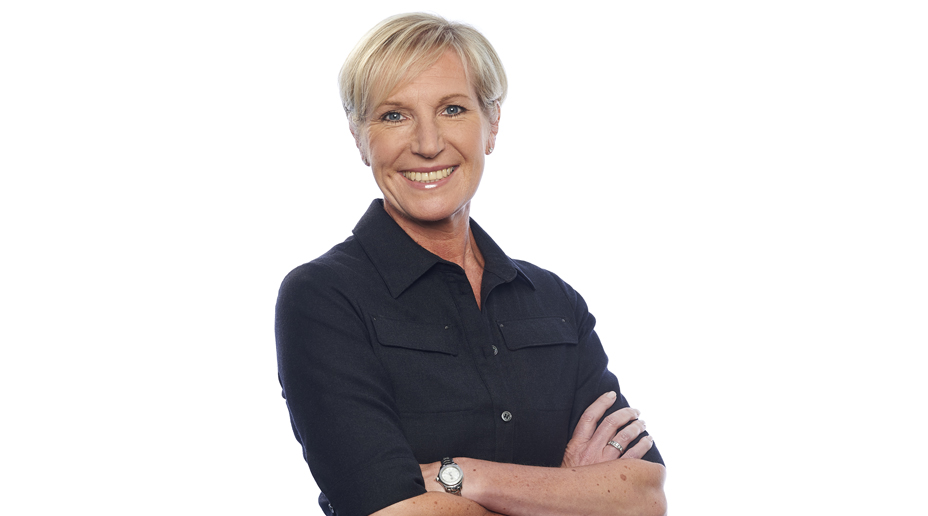
Doing everything for the planet
Posted: 24 May 2022
Like other financial institutions, we’ve worked with the Bank of England on the Climate Biennial Exploratory Scenario (CBES). Banks and insurers have provided projections to assess the impact that climate change will have on their businesses.
It has been a worthwhile and hugely informative exercise – we very much enjoyed taking part – but it makes for sobering reading.

One of the conclusions of the report is that with floods and storms expected to cause more frequent and costly damage, insurance may become unaffordable or unavailable in some regions. That, however, is not inevitable. If all areas of business and society do their bit to reduce the impact of climate change, a worst-case scenario could be avoided.
At Allianz, we have had environmental goals embedded in our strategy for a while now, and just last month we accelerated our global climate plan. We’ll be taking a stricter stance on oil and gas as we continue to pull out of coal, and we’ll target net-zero operations by 2030 instead of 2050.
The CBES confirms that insurers need to intensify their efforts to build their own resilience, reduce their impact on the planet and be there for their clients as they also transition their ways of living and working.
Allianz operations in the UK have been carbon neutral since 2012, and our offices are powered 100% by renewable energy. When we move sites, we opt for sustainable buildings and we recycle our office furniture and equipment. We donate surplus food from our Guildford headquarters’ canteen to a local charity. For motor claims, we support the use of green parts and for property claims, we encourage repairs rather than replacement. We’ve also changed our tagging method for inspections to cut plastic waste.
We want to influence our partners to protect the climate as well. So we’ve launched a sustainable procurement charter to prioritise suppliers who have strong environmental standards and we’ve set up the Allianz Net Zero Accelerator to support independent brokers in measuring, reducing and offsetting their carbon footprints.
Finally, at a customer level, we want to empower people and businesses to transition to net zero. Concretely, that means providing cover for electric vehicles, renewable infrastructure and other green projects. Plus, we are constantly looking at new products we may offer to enable a wider shift to a more sustainable economy.
As a business, we’re rising to the challenge and we’ve been joining forces with others in the industry to preserve our environment. What the CBES shows, however, is that insurers are up against powerful forces and we cannot do this alone.
Flooding is among the perils that pose the largest physical risks in the UK, along with storms. Over the next 60 years, if no action is taken to mitigate climate change, annual losses from inland flooding could double and those from coastal flooding could grow tenfold.
Extreme weather events cause claims surges, which pose organisational challenges as insurers and loss adjusters need to handle large volumes at once. Storm Eunice in February showed how the industry leveraged geospatial data and mobilised surge teams to deliver the level of service our customers deserve. However, in a future suffering more frequent and extreme weather events, to guarantee stable levels of service, products might need to evolve toward parametric payments.
If future natural catastrophes cause increased global losses, this puts into question the availability of reinsurance. Without sufficient protection, insurers would need to drastically re-think their exposure; the impact on affordability and availability of insurance would be significant. Working to reduce flood risk now is therefore vital.
Under the ‘Build Back Better’ scheme initiated by Flood Re, some homeowners who’ve suffered a flood can claim up to £10,000 to repair their property so that it is more resilient (special doors, waterproof flooring, higher sockets).
Longer term measures could also make a difference. The government is investing £5.2bn in flood and coastal defences over six years (2021-2027) and these will need to be maintained. It is important that government investment in flood defences continues.
Finally, planning regulations should be reformed so as to avoid floodplain developments.
The information contained in this press release relates to Allianz Insurance plc. Allianz Insurance plc is one of the largest general insurers in the UK and part of the Allianz Group.
About Allianz Holdings plc
Allianz Holdings plc is the non-regulated holding company which owns the principal insurance operations of Allianz SE in Great Britain.
About Allianz
The Allianz Group is one of the world's leading insurers and asset managers with more than 100 million* private and corporate customers in more than 70 countries. Allianz customers benefit from a broad range of personal and corporate insurance services, ranging from property, life and health insurance to assistance services to credit insurance and global business insurance. Allianz is one of the world’s largest investors, managing 790 billion euros on behalf of its insurance customers. Furthermore, our asset managers PIMCO and Allianz Global Investors manage 1.7 trillion euros of third-party assets. Thanks to our systematic integration of ecological and social criteria in our business processes and investment decisions, we are amongst the leaders in the insurance industry in the Dow Jones Sustainability Index. In 2021, over 150,000 employees achieved total revenues of 148.5 billion euros and an operating profit of 13.4 billion euros for the group.
These assessments are, as always, subject to the disclaimer provided below.
Cautionary note regarding forward-looking statements
This document includes forward-looking statements, such as prospects or expectations, that are based on management's current views and assumptions and subject to known and unknown risks and uncertainties. Actual results, performance figures, or events may differ significantly from those expressed or implied in such forward-looking statements. Deviations may arise due to changes in factors including, but not limited to, the following: (i) the general economic and competitive situation in the Allianz Group's core business and core markets, (ii) the performance of financial markets (in particular market volatility, liquidity, and credit events), (iii) the frequency and severity of insured loss events, including those resulting from natural catastrophes, and the development of loss expenses, (iv) mortality and morbidity levels and trends, (v) persistency levels, (vi) particularly in the banking business, the extent of credit defaults, (vii) interest rate levels, (viii) currency exchange rates, most notably the EUR/USD exchange rate, (ix) changes in laws and regulations, including tax regulations, (x) the impact of acquisitions including and related integration issues and reorganization measures, and (xi) the general competitive conditions that, in each individual case, apply at a local, regional, national, and/or global level. Many of these changes can be exacerbated by terrorist activities.
No duty to update
The Allianz Group assumes no obligation to update any information or forward-looking statement contained herein, save for any information we are required to disclose by law.
*Including non-consolidated entities with Allianz customers.



























